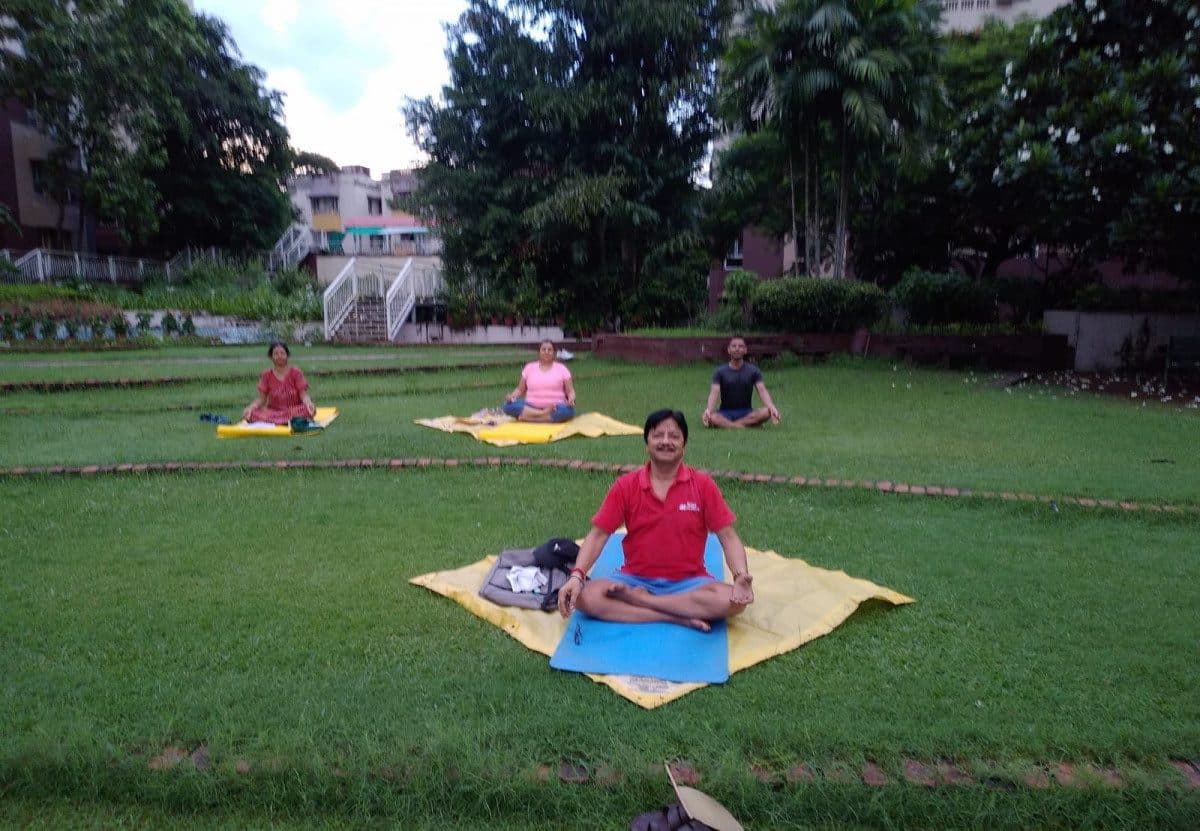I.P. Mishra rarely missed his yoga routine since he began doing it at 40. When the day of his retirement came in September 2022, after serving 30 years as an accountant in a tea company in Kolkata, he felt his health could never be any better than ever before. With his fitness at the best level possible, thanks to his morning pranayams, Mishra sought an extension in his job, and his employer was more than willing to grant him one. His company was looking for his replacement, and when he asked if he could continue, it happily extended his employment by another year.
Mishra’s positive spirit shows that age is just a number. He recalls that, in 1984-85, when he was in his prime and was preparing for the chartered accountancy exam, it was common for most people of his age to look for government jobs. He, however, opted for a private company.
Mishra’s splendid health at 60 could make those even younger than him go green with envy. He says, “I don’t take any medicine regularly. I don’t have blood pressure, sugar, or heart problems. One plus point is I have been doing yoga and pranayam daily for the last 20 years. Even today, I do 20-30 (repetitions of) Surya Namaskar daily. I keep myself fit, and that is why I can work.”
Mishra says he never lets any negative feelings take control of him or affect his family of four, his wife, and two daughters, although there have been hardships in the initial days of his career.
After the birth of his first child, he gave up his CA preparations to take up a full-time job. Says Mishra, “When I joined (work), my salary was only Rs 2,000.” As his salary increased over time, he could buy a flat in Kolkata and fulfill other responsibilities.
Getting Into A Savings Habit
Mishra had no health insurance when he started working, but around 2005, the company provided employees with group health insurance that covered his entire family. So, he didn’t buy a separate health insurance policy, although he later took an accidental insurance.
Today, he has home and life insurance policies. He bought life insurance early in his career and regularly invested in recurring deposits (RDs). These investments inculcated in him a habit of regular savings, helping him create a substantial corpus fund for his daughters’ marriages.
“When I started paying premiums for my life insurance policies, I also started recurring deposits. That helped me a lot. I always preferred small investments. Also, whenever I got a chance, I invested in blue-chip shares,” he says.
Handling Money Wisely
“When I invest, I try to ensure I get good returns or don’t go below the break-even.” He says he won’t invest just because everyone else is investing in a particular product.
Interestingly, Mishra has not planned his retirement. He kept working, and when retirement came, he took an extension of his job, and he would invest for post-retirement once his extension ended. After receiving a lump sum at retirement, Mishra used the money to buy guaranteed income instruments, like fixed deposits and national savings certificates. He withdraws a part of the interest every month and reinvests the rest.
Regarding his investments in the stock market, Mishra says, “I am a long-term investor. I do not invest today and take the money out tomorrow. I get dividends from my investments. Now, I don’t think of new investment. I may continue working with the company for 1-2 years. Then I will need money for my day-to-day expenses.”
Unlike some people of his age, Mishra doesn’t hesitate to use a credit card. He says it is not to satisfy the shopping urge but to avail of the credit facility. “Why not use it when you have a credit facility of 20-30 days? I don’t use it much and have only a limit of Rs 40,000,” he quips.
Learning From Mistakes
Earlier, he was doubtful regarding the security of digital technologies. Now, he does banking through UPI, QR, and other digital payment modes. Sharing an incident highlighting his ignorance at the time, he says he chose the figures next to the valid cheque number while making a payment once, so the party didn’t receive the money. Fortunately, the bank traced the cheque, and he didn’t lose the money.
“I used to be scared of making mistakes. I was scared the first time I paid an income tax challan for the company around 15-20 years ago. But now I am habitual of digital things.”
Love For Yoga
Yoga has become an addiction for him. He teaches yoga every morning at a nearby park of his house, where people fondly call him “Guruji”. “Just as people can’t stop eating food, I can’t quit yoga,” says Mishra. Regarding savings and investment, Mishra’s tip to young people is to follow the philosophy of “slow and steady wins the race.”




